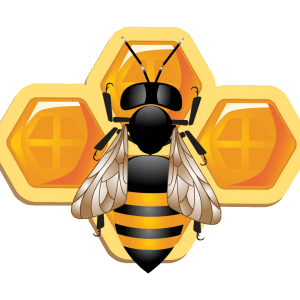
Corporate Headquarters
P.O. Box 266
1833 Park Lane
Burlington, WA 98233
Office: (360) 757-6053 / Fax: (360) 757-4143


Bees are often one of the most underappreciated insects on our planet and yet they are some of the hardest working. Their laborious efforts play an important role in the production of many of the foods we consume from vegetables to fruits, and often impacting the food eaten by other animals. Not only must be pay homage to such a magnificent creature for their roles in our food but also for the delicious nectar we call honey and the wax we use in common household items.
Unfortunately, bees are disappearing globally at an alarming rate – life would be significantly different if these hardworking insects vanished all together. Bees are responsible for pollinating approximately one-sixth of flowering plant species and about 400 different agricultural types of plants worldwide.
Pollination is the vital process in flowering plant reproduction and an invaluable service provided by bees and other pollinators including bats, moths, butterflies, hummingbirds, and beetles. These pollination services are not only vital for our worldwide ecosystem’s survival but also contribute to approximately over $20 billion toward agricultural crops in the United States alone.
There are around 25,000 different bee species identified worldwide with about 4,000 just found in the United States alone; honeybees are more recent settlers. This massive number of 25,000 is then further classified into 4,000 genera and then even further divided into just nine bee families. The Apidae family is the most commonly known and often found in your very own backyard; honeybees and bumblebees to name a few. The different kinds of bees have different success at their jobs and dutifully take on their challenges; for example, bumblebees appear to have greater success at pollinating certain kinds of crops due to their size and their more vigorous vibrations.
It all magically happens through a process called pollination. Simply stated, pollination is the vital process in flowering plant reproduction involving the transfer of pollen grains from the anther (male part) to the stigma (female part) of the same, or another plant of the same species. Upon the two parts meeting, a plant’s seed, nut, or fruit is then formed.
Some plant species transfer the pollen on their own, while others rely on the wind as well as animals. Most importantly, the honeybee’s role as they pollinate on a large commercial scale, aiding in the production of all sorts of fruit and vegetables. Bees tend to focus their energies on one plant species at a time which aides in a higher quality pollination so the pollen is more evenly distributed rather than the wind spreading pollen to different plants that do not require that particular pollen for survival. Pollination is essential for plant reproduction as well as the production of foraging crops like beans and clover often readily consumed by livestock and other foraging animals.
There are a number of foods affected directly by the health of bees in our ecosystem including, but not limited to, asparagus, cucumbers, blueberries, cherries, apples, and almonds. Let’s also not forget the sweet nectar so readily consumed, honey, with over 42 million pounds produced in 2015 (per USDA statistics).
Of course, we value the food production and liquid gold created by these hard-working insects but let us not forget how beautiful the bees and their fellow pollinators make the world. Perhaps the simplest task the bees endeavor in is the beautification of the floral landscape. Truly, bees are one of the most important insects on the planet and for this we are grateful!
Beekeeping has become a great pastime and hobby for many people. Skagit Farmers and the Country Stores strongly believe in the importance of bees and encourage responsible beekeeping. We encourage people to research the benefits of beekeeping – we do offer all the supplies you need to start a thriving and healthy colony. Bees produce delicious honey as well as other foods in your garden for you to harvest and often people find bees are a safe and fairly easy hobby to undertake. There are local and city ordinances that must be complied with so we encourage you to check before starting.
If you love bees but beekeeping is not for you we encourage you to plant bee friendly flowers through-out the year from spring to fall. Crocus, hyacinth, borage, calendula, and wild lilac provide enticing spring blooms. During the summer months the bees feast on bee balm, cosmos, echinacea, snapdragons, foxglove, and hosta. For fall, zinnias, sedum, asters, witch hazel, and goldenrod are late bloomers that will tempt foragers. These plants and seeds are also available in our Country Stores!
Have questions? Feel free to stop in one of our stores or email us. We love to hear from you!
We offer this simple advice:
BEE trained
BEE courteous of your neighbors
BEE aware of local and state laws
BEE thoughtful to your hive’s location
BEEcome part of the solution for saving our BEE populations!
Contributed by Selene Muldowney, Marketing Assistant